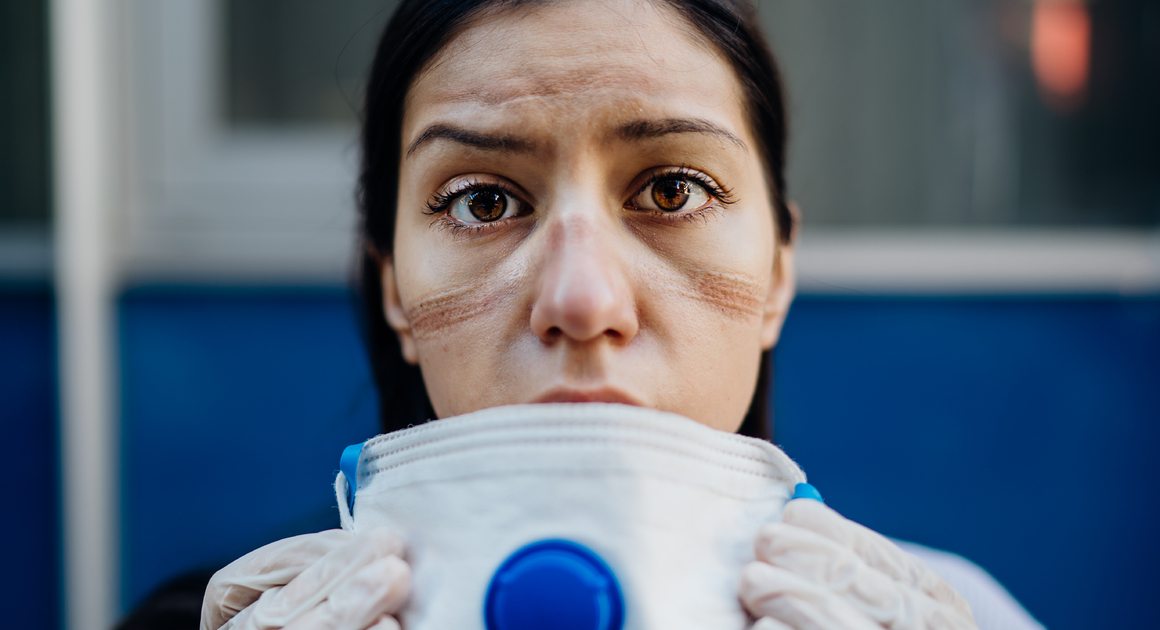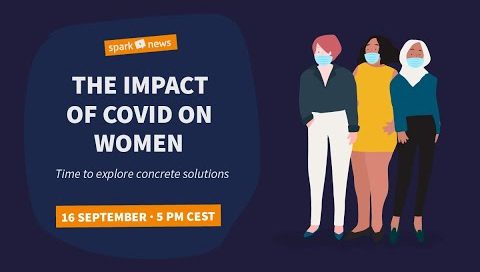The global pandemic disproportionately affects women and our recovery plan must manage the impact of COVID-19 on women. To manage the impact, representation should be at the forefront of the recovery plan. COVID-19 affects every aspect of women’s lives and livelihoods and their concerns must be addressed in the pandemic recovery plan.
Sweeping Career Regression as Women Leave the Workforce to Care for Their Families
This health crisis means that a disproportionate amount of work is falling on women who do unpaid and paid care for the elderly, children and spouses. In order to balance this work, the notion that ‘men don’t do domestic work’ needs to be changed. Solutions like funding for parent training or changes to corporate parental leave is a good place to start to ensure men aren’t considered secondary caregivers. In the work sphere, we must normalize care work for men in the same way we have encouraged women into STEM careers.
Gender-equity in the workplace also has a significant impact for women’s financial independence. While women have disproportionately left work to stay home and care for their families, the lock-down keeping everyone at home has created a recent surge in cases of domestic violence.
To recover from the pandemic, governments need to prioritize solutions to gender-based violence by keeping social protection policies and programs in place, making cash transfers more accessible and naming shelters and gender-based violence organizations as ‘essential.’ Additionally, for long-term solutions, they must prioritize preventative measures by engaging men in allyship and teaching them to speak up when other men use violence.
Difficulty for Female Frontline Workers
Women represent 70% of global frontline workers but their needs are not considered when designing PPE. There is a lack of female voices in global health leadership. When leaders don’t represent the people they make decisions for, social, economic and health consequences are at stake. In this case, the health and safety of the whole world is at risk. To manage the impact of COVID-19 on women, representation should be at the forefront of the recovery plan.
Possible Solutions
Shelter Movers, along with speakers and entrepreneurs from all over the world, discussed productive solutions to COVID-19’s impact on women in a conversation hosted by Spark News.
The discussion opens with a panel of four leaders in gender equality; Sarah Hilwarre from Women in Global Health, Alexandra Topping from the Guardian, Gary Berker from Promundo, and Sybil Chidial from the Bill and Melinda Gates Foundation. The panel is followed by presentations from Shelter Movers’ Founder and Executive Director, Marc Hull-Jacquin, and other entrepreneurs who share their solutions to gender inequality.
Interested in watching the discussion? You can view the entire panel discussion now at on Youtube. The presentation on Shelter Movers begins at [1:15:30].
Solutions in Action
Barefoot College, She Writes Woman, Shelter Movers and Mothers 2 Mothers are all organizations that apply gender-informed business models. These organizations are working tirelessly during the pandemic to make sure women remain protected and safe with their real-time transformative solutions.
To manage the impact of COVID-19 on women at home and on the frontlines, representational leadership in governments, organizations and enterprises is essential. Their representation provides inclusive and gender transformative perspectives that apply critical awareness to the distribution of resources and duties between intersectional identities to get universal results.
The Power of Representation
For low-income countries, representation in leadership starts at the local level. Sybil Chidial, who works with women’s empowerment collectives in Africa, stresses that women holding community leadership positions is a fundamental building block to their inclusion in governmental legislation. Their role in political processes gives them the voice to ask for change and the experience to participate in parliament. As these women come together in their communities to discuss social, economic, health and wellbeing concerns, they find solutions by combining resources and supporting one another.
Not only are these women recognized as role models for withstanding shocks and crises but as women, they encourage inclusive transformative leadership styles that apply critical awareness to the distribution of resources and duties amongst people of various identities in gender, race, class and sexuality.
COVID-19 affects women in every aspect of their lives. From their health and safety, financially, and even politically. To ensure an adequate recovery plan is in place, women must be represented in the decision making process. In doing so, a COVID-19 recovery plan would be better equipped to address the increase in gender-based violence and the burden of care work, allowing it to be managed in a more inclusive and effective manner.



Pingback: Towards Equality - Shelter Movers